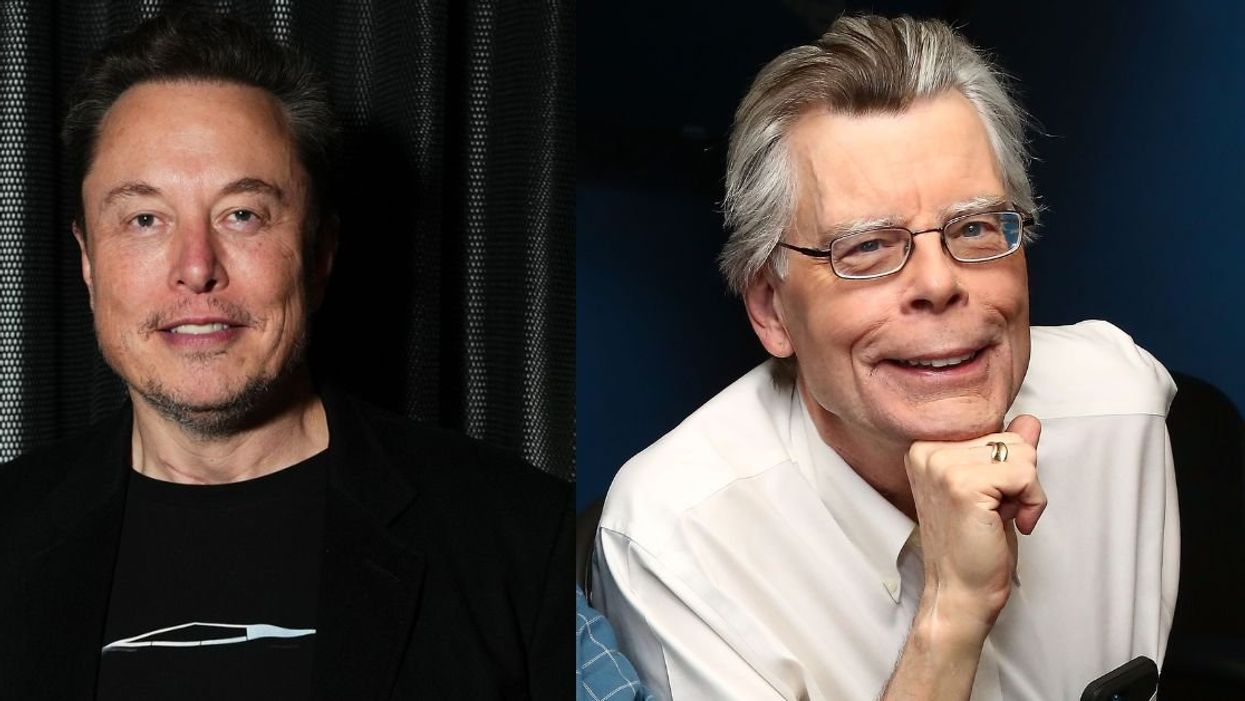Elon Musk retaliated after literary horror master Stephen King mocked him after the SpaceX founder's Falcon 9 rocket launch vehicle partially exploded during a landing attempt on August 28.
King, who is known for authoring the best-selling books The Shining, Carrie and It, took to Musk's social media platform X (formerly Twitter) and wrote:
"Oops. SpaceX launches are on hold after a booster rocket toppled over in flames while landing Wednesday."
Musk attempted to launch a full-on assault on the celebrated author with an AI-generated image of him drowning in cash with a wet eggplant emoji shoved in his mouth.
Pennywise, the demonic clown character from King's 1986 masterpiece, It, can be seen observing in the background.
Musk accompanied the image with a caption calling King a "Dick."
Social media users raked Musk across the coals for his grade-school-level trolling.
The U.S. Federal Aviation Administration (FAA) grounded SpaceX's rocket after one of its reusable Falcon 9 boosters erupted in a fireball after tipping over during a landing attempt on a droneship at sea during a Starlink mission on Wednesday.
The Falcon 9 booster that went down in flames, tail number B1062, had been refurbished and flown 22 times before its failure.
However, it successfully deployed 21 internet-boosting satellite Starlinks into orbit before the reusable first-stage booster toppled over, resulting in the fiery blaze at sea.
Following the FAA's demand for an investigation, Musk commented on the mishap, writing:
“Now we figure out what went wrong to drive the landing failure rate far above 1 in a thousand, then 1 in 10 thousand … 1 in a milion [sic], etc."
On Friday, it was announced that Falcon 9 was cleared to fly again.
In an emailed statement obtained by CNN, the agency wrote:
“The SpaceX Falcon 9 vehicle may return to flight operations while the overall investigation of the anomaly during (Wednesday’s) mission remains open, provided all other license requirements are met."
“SpaceX made the return to flight request on Aug. 29 and the FAA gave approval on Aug. 30.”
The rocket is back on track for two human-manned spaceflight missions, one with a crew of civilians aiming to conduct the first commercial spacewalk, and another with two NASA astronauts who will be sent to the International Space Station on Crew-9 for a mission to bring back Boeing Starliner’s test flight crew in 2025 that has been in limbo on the orbiting laboratory since June.








 @PreetBharara/X
@PreetBharara/X @RepBrendanBoyle/X
@RepBrendanBoyle/X @twesq/Bluesky
@twesq/Bluesky @christopherharris/Bluesky
@christopherharris/Bluesky @evangelinewarren/X
@evangelinewarren/X






 @FrankC164/X
@FrankC164/X
 AMC
AMC